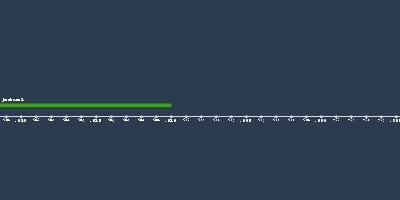2 nov 1917 año - Balfour Declaration
Descripción:
2nd November 1917"His Majesty's government view with favour the establishment in Palestine of a national home for the Jewish people, and will use their best endeavours to facilitate the achievement of this object, it being clearly understood that nothing shall be done which may prejudice the civil and religious rights of existing non-Jewish communities in Palestine, or the rights and political status enjoyed by Jews in any other country."
The decision to release the declaration was taken by the British War Cabinet on 31 October 1917. This followed discussion at four War Cabinet meetings (including the 31 October meeting) over the space of the previous two months. In order to aid the discussions, the War Cabinet Secretariat, led by Maurice Hankey and supported by his Assistant Secretaries – primarily Sykes and his fellow Conservative MP and pro-Zionist Leo Amery – solicited outside perspectives to put before the Cabinet. These included the views of government ministers, war allies – notably from President Woodrow Wilson – and in October, formal submissions from six Zionist leaders and four non-Zionist Jews.
British officials asked President Wilson for his consent on the matter on two occasions – first on 3 September, when he replied the time was not ripe, and later on 6 October, when he agreed with the release of the declaration.
Excerpts from the minutes of these four War Cabinet meetings provide a description of the primary factors that the ministers considered:
3 September 1917: "With reference to a suggestion that the matter might be postponed, [Balfour] pointed out that this was a question on which the Foreign Office had been very strongly pressed for a long time past. There was a very strong and enthusiastic organisation, more particularly in the United States, who were zealous in this matter, and his belief was that it would be of most substantial assistance to the Allies to have the earnestness and enthusiasm of these people enlisted on our side. To do nothing was to risk a direct breach with them, and it was necessary to face this situation."
4 October 1917: "... [Balfour] stated that the German Government were making great efforts to capture the sympathy of the Zionist Movement. This Movement, though opposed by a number of wealthy Jews in this country, had behind it the support of a majority of Jews, at all events in Russia and America, and possibly in other countries ... Mr. Balfour then read a very sympathetic declaration by the French Government which had been conveyed to the Zionists, and he stated that he knew that President Wilson was extremely favourable to the Movement."
25 October 1917: "... the Secretary mentioned that he was being pressed by the Foreign Office to bring forward the question of Zionism, an early settlement of which was regarded as of great importance."[143]
British War Cabinet minutes approving the release of the declaration, 31 October 1917
31 October 1917: "[Balfour] stated that he gathered that everyone was now agreed that, from a purely diplomatic and political point of view, it was desirable that some declaration favourable to the aspirations of the Jewish nationalists should now be made. The vast majority of Jews in Russia and America, as, indeed, all over the world, now appeared to be favourable to Zionism. If we could make a declaration favourable to such an ideal, we should be able to carry on extremely useful propaganda both in Russia and America.
Añadido al timeline:
fecha:
2 nov 1917 año
Ahora mismo
~ 108 years ago
